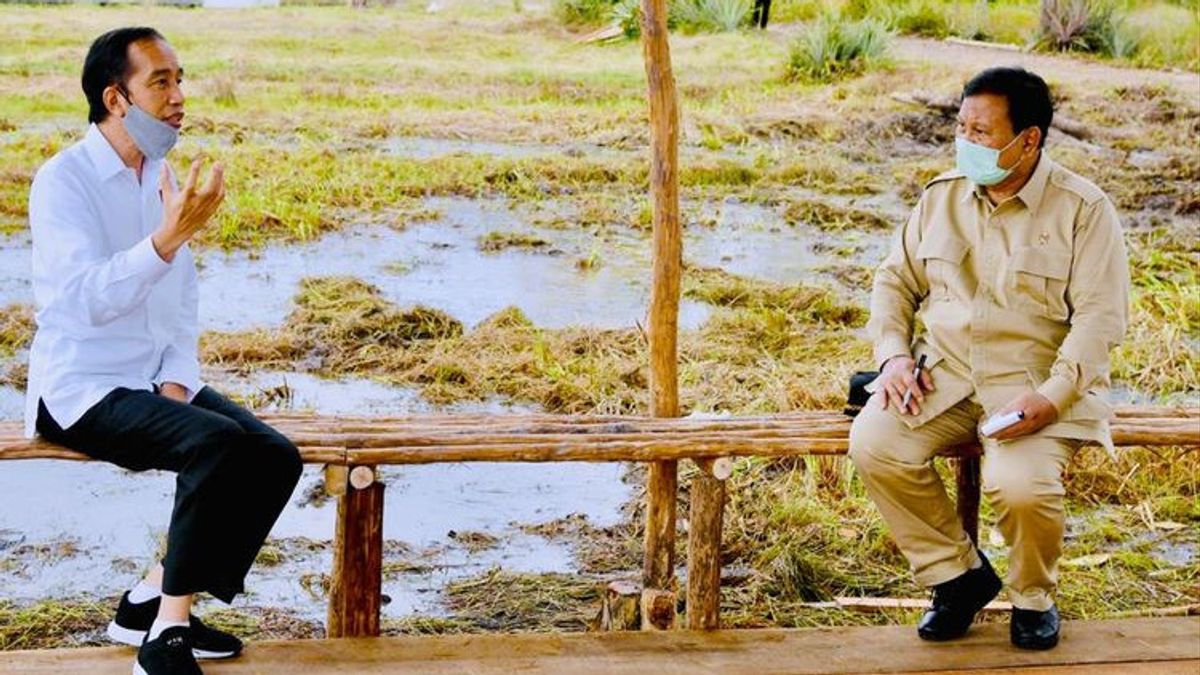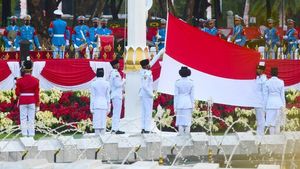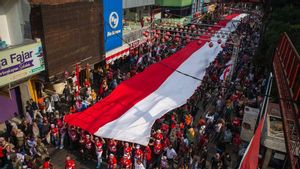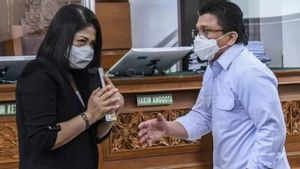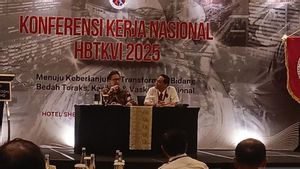The food estate program or food barn in the era of the President of the Republic of Indonesia Joko Widodo (Jokowi) has again reaped scorn. It is predicted that as an effort to strengthen food security,food estate is actually one of the causes of the climate crisis. Like a slander: the heart's intention to embrace the mountain, what is the power of the hand is not reached. It aspires to be high, but there is no attempt to make it happen.
This program is the visionary idea of Central Kalimantan Governor Sugiarto Sabran which was proposed directly to President Jokowi in a limited meeting at the State Palace in 2017.
The construction of the Central Kalimantan food estate began in 2020. The area of land cultivated in the early stages, October two years ago, was 30,000 hectares of the total 1.4 million hectares of fund estates in total. The construction of thefood estate was first carried out in Central Kalimantan and North Sumatra. In the future, thefood estate is also planned to be carried out in other provinces. The program, which starts in 2020, is planned to end in 2025.
Three years passed andfood estate in the era of President Jokowi was considered not only a failure, but also a cause of disaster. The stalled land used for fund estate justru has the potential to be the cause of the fire.
Food estate is a popular term for over 25 hectares of large-scale crop cultivation business activities carried out with the concept of agriculture as an industrial system based on science and technology (science and technology), capital, as well as modern organizations and management.
The basicfood estate concept is placed on the basis of the integration of sectors and sub-sectors, in an agribusiness system by utilizing resources optimally and sustainably. Managed professionally, supported by quality human resources, appropriate technology for environmental and institutional purposes.
Quoted from the plantation.go.id page,food estate or food barn is one of the 2020-2024 National Strategic Programs (PSN) to build a national food barn on an area of 165,000 hectares. In 2020, 30,000 hectares were carried out as a pilot model for the application of 4.0 agricultural technology.
Thefood estate program was not only carried out in the era of President Jokowi. It was President Soeharto who pioneered this food barn program through Presidential Decree (Keppres) Number 82 of 1995. The second President of the Republic of Indonesia opened the Peat Land Project (PLG) of one million hectares of rice fields in Central Kalimantan.
However, the existence of the PLG program was decided to end and fail three years later through Presidential Decree No. 33 of 1998 during the reign of Bacharuddin Jusuf Habibie.Food estate, which spent around Rp. 1.7 trillion, failed due to a lack of socio-ecological studies in the peat ecosystem. As a result, this program triggers social-economic losses due to forest fires.
Programfood estatejilid dua diperhakan di era Presiden Susilo Bambang Yudhoyono (SBY) yang disebut dengan program Merauke Integrated Energi Estate (MIFEE) tahun 2010. MIFEE diterbitkan lewat Instruksi Presiden (Inpres) Nomor 5 Tahun 2008 tentang Fokus Program Ekonomi Tahun 2008-2009.
The essence of this program is to open land for 1.2 million hectares of rice fields in Merauke, Papua. The MIFEE program was again unsuccessful. Damage to the people's sago forest is inevitable. The local community finally had difficulty finding food such as sago, fish, and venison or pork after the forests were converted.
It did not stop there, the government of the SBY era then opened land in North Kalimantan in 2011 to print 30,000 hectares of rice fields in North Kalimantan. And again the project failed.
Agriculture observer and Professor and Head of the Center for Biotechnology IPB Dwi Andreas Santosa assessed that the food estate program, which started from the Suharto administration to Jokowi, failed due to several factors. According to him, the failure occurred because the government violated four pillars of large-scale agricultural land development, namely the incompatibility of land that was used as a food estate, infrastructure, cultivation and technology issues, as well as socio-economics.
Meanwhile, Uli National Forest Campaign and WALHI Gardens Manager Arta Siagian assessed that the failure of thefood estate since the Suharto to Jokowi era was due to the wrong paradigm. Thefood estate program to meet food security will only kill productive land. That's because food security does not pay attention to the impact of the area that is used as a food estate.
VOIR éGALEMENT:
So far, we haven't seen the positive impact of thefood estate program, because this doesn't answer the existing problems. The government should look at the environment, culture, traditional local environment and respect the food produced," Uli said during a conversation with VOI.
The goal of preventing the threat of a food crisis in Indonesia initiated by Jokowi again failed. The cassava plantation in Central Kalimantan covering an area of 600 hectares stalled and 17,000 hectares of new rice fields never harvested. Thefood estate program in Central Kalimantan only triggers new problems. Starting from the increasingly widespread and prolonged flood disasters, to forcing the Dayak people to change their growing habits.
The land that was used as the National Food Barn was previously a forest that was the mainstay of local residents. They use peat forests to take wood to build houses, hunt cancils and pigs, and look for traditional ingredients.
When transformed into afood estate program, the local community cannot do much because there is no deliberation by the device with the matter of the food estate program or the opening of the cassava garden. One of the causes of the failure of the cassava garden is because the soil condition is not suitable, because the characteristics of the land are 70 percent sand. According to Uli, it is the local community who knows better about land conditions, so forcing the food estate program by changing people's habits will only leave damage.
"When thefood estate program is handed over to entrepreneurs, it will only kill productive land, even though the people who know the most about land are local people," Uli added.
Jokowi'sfood estateera project has also drawn a lot of criticism, including from the Secretary General of the PDI-P, Hasto Kritiyanto. He called this food barn a "environmental crime".
Food estate is not well worked on.Food estate within the framework to make Indonesia do the food sector a political stance from the PDI-P. What we criticize is that after a long time, it turns out that the forest that has been cut down has been abandoned," said Hasto.
Regarding the impact of the environment that is threatening due to land clearing for thefood estate, environmental activists have actually voiced it for a long time. However, the government did not budge and was determined to continue this food barn program.
The Peat Monitoring Study Team in March discovered indications of widespread deforestation. Not only deforestation and the risk of flooding widespread, thefood estate that uses peatlands also has the potential to trigger forest and land fires (karhutla).
In Central Kalimantan, the food estate area used is peatlands. Seeing peat typology, when it drys it is very flammable. If thefood estate occurs in the peat area and then it is abandoned, then this could be one of the causes of forest and land fires," said Uli.
As of June 2023, there were at least 38 cases of forest and land fires that occurred in Palangka Raya City with an area of 27.20 hectares. Forest and land fires cases occur in almost all sub-districts in Palangka Raya City, except for the Rakumpit District.
"Based on data from May to June, the number of cases of forest and land fires has increased significantly, with details of Jekan Raya District there are 19 cases, Pahandut 4 cases, Sebangau 12 cases, Bukit Batu 3 cases, while the Rakumpit area itself does not exist," he told BPBD Palangka Raya City, Emi Abriyani.
Now that the food estate land has stalled again with the threat of disasters and climate crises in parts of Indonesia, it is time for the government to rethink.
Conducting evaluations and corrections before damage is more widespread. A number of policies that can perpetuate land clearing also need to be evaluated.
It takes a deeper and a longer calculation. For areas that have not been operational should be stopped. Those that have been running should be evaluated. The regulatory basis is supported by regulations that refer to the Manpower Creation Act. As long as space is still open for land clearing, then at any time this law becomes legitimacy for the food estate," Uli emphasized.
The English, Chinese, Japanese, Arabic, and French versions are automatically generated by the AI. So there may still be inaccuracies in translating, please always see Indonesian as our main language. (system supported by DigitalSiber.id)
